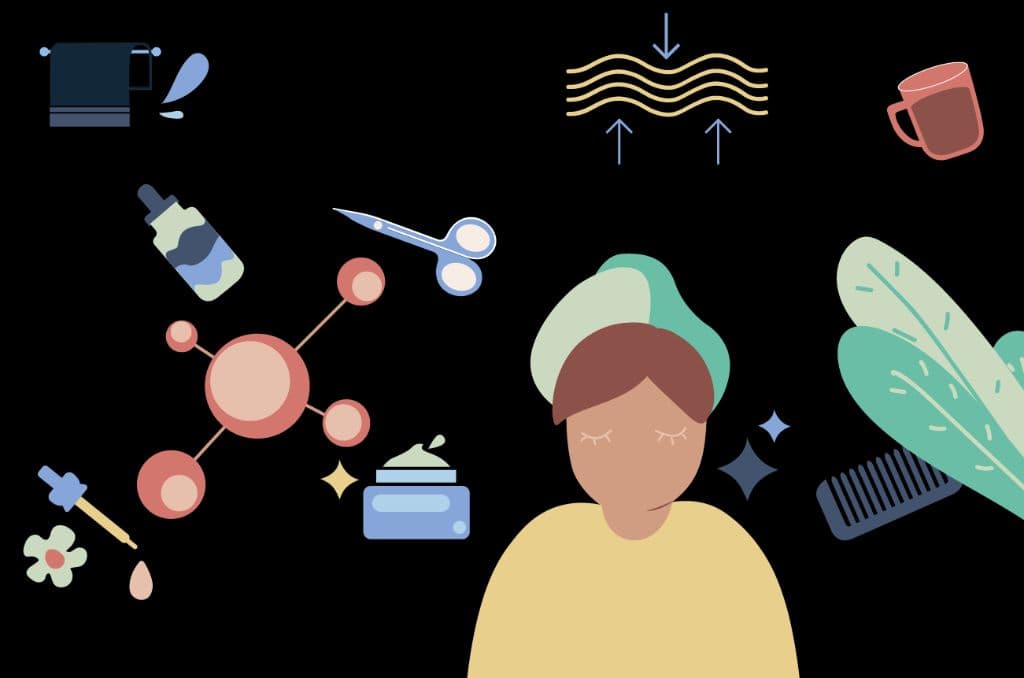For many people, dry skin is not just a problem in the winter, it’s a year-round concern. Known medically as xerosis cutis, dry skin happens when the skin’s natural lipids (oils and fats) are low and the moisture is sapped from the outermost layer of the skin.
There are many factors that can trigger this, from genetics to nutrition to weather changes to skin care habits and products. If left unattended, dry skin can lead to fine lines and premature wrinkles. Other symptoms include itching, redness and, in more extreme cases, cracking or bleeding.
It's not just winter conditions that lead to dry skin; it's also a change in our skin's top layer, or epidermis. This layer is normally thick with naturally occurring fats and oils that act as a barrier to help retain moisture and prevent irritants from entering the skin. But as we age, the skin thins and we lose some of those fats and oils. This in turn allows vital moisture to escape from the skin.
Causes of dry skin
Your first thought when you experience dry skin, may be to pile on moisturizer. And while that might help temporarily, it may be more beneficial to get to the bottom of what’s causing the dryness in the first place. You might be surprised by what you find — some skin dehydrators lurk in surprising places.
- Dry skin is genetically determined. It can be hereditary
- It is also age related due to reduced sebum secretion by oil glands (before adolescence & after the age of 50 skin is more prone to dryness)
- It is weather related: Dry, low humidity, cold weather and other factors can aggravate that feeling of dryness
- It depends on daily habits of frequent washing or moisturizing the skin
- Dermatitis (inflammation of the skin) is a severe form of dryness that affects different body parts in individuals with sensitive skin
- Dry skin can occur due to diseases (hypothyroidism, kidney disease, severe malnutrition, vitamin A, B1, B3, C, D deficiency) or medications (for cholesterol, BP)
A combination of these factors resulting in reduced sebum production or increased trans-epidermal water loss due to damaged skin barrier cause dryness.
What does it look like on the body
Dry skin may have flaking, dullness, wrinkles are more visible, cracks visible like scales (of a fish- that’s what genetically dry skin is called- ichthyosis- skin of a fish), it can be itchy . Skin issues such as psoriasis and eczema can make your skin more prone to dryness. However, dry skin could also indicate something seemingly unrelated, such as diabetes, hypothyroidism, malnutrition, kidney failure, or Sjögren's syndrome.
How is it diagnosed?
You will usually be able to diagnose it yourself. Your doctor will be able to help you with the possible cause of your dry skin by reviewing your medicines, comorbidities, and maybe a simple blood test for your thyroid status, blood sugar, kidney function.
You might ask, how to know if the dryness is the result of something run-of-the-mill like the weather or something more serious? Be on the lookout for inflamed areas, crusting, intense itchiness, hyperpigmentation, and rough, flaky, or scaly patches on the skin and take those as a hint it’s time to visit a doctor. Once you have nailed down the root cause for the dryness, your doctor can help you determine the proper treatment.
How to deal with dry skin
Once you have identified certain lifestyle factors that could be exacerbating it (like frequent hand washing causing dry hands, or scrubbing of your legs daily in the bath or excessive exfoliation , that further damages the skin barrier and dries the skin further, or use of harsh soaps on the skin, or lack of use of moisturizer in winter) , you can correct them.
Basic tips for dry skin:
Bath time:
- Keep your bath short and avoid very hot water as it worsens dry skin, stripping it of sebum.
- Use less soap on extremities, use either a moisturizing bar (soap free cleanser) or a gel. Don’t forget to, promptly moisturize after you step out of the bath, while the skin is still slightly damp so it retains moisture better.
- Use coconut oil or vaseline jelly if you have severe dryness (best for the elderly, it seals in the moisturizer- it is an occlusive) on the body.
Repairing the skin barrier:
- Reapply moisturizer or oil on the body throughout the day. This is the most important.
- Use a good moisturizer with ceramides, squalene, shea butter, glycerin, paraffin, allantoin, colloidal oatmeal- these soothe the skin and have a longer lasting intensive moisturizing effect.
- Avoid the itch-> scratch cycle by consulting your dermatologist. The more you feel itchy, the more you will scratch and it is a vicious cycle. This cycle can be broken with oral anti-allergics and a steroid and non-steroidal immunomodulator cream for a short duration. These medications are very effective at reducing inflammation in irritated skin, but are to be used only as advised by your doctor.
Clothing:
- Should ideally be soft cotton material, as wool tends to increase itchiness as it rubs against dry skin.
When you’re picking a product for your skin, it is important that you get a certified professional’s opinion since certain ingredients could end up causing skin inflammation. It is also best to consult a doctor to find a proper way to treat your dry skin.
Disclaimer - This information is provided for educational purposes and should not be construed as medical advice. Please consult with your healthcare practitioners before undertaking any changes in your diet or adding supplements.
ProactiveForHer is a digital clinic for women, offering accessible, personalized, and confidential health-care solutions. We offer products and services for out-patient health concerns of Indian women, across their lifetime - from puberty to pregnancy to menopause. To know more on the sexual and reproductive health of women, visit https://www.proactiveforher.com/

